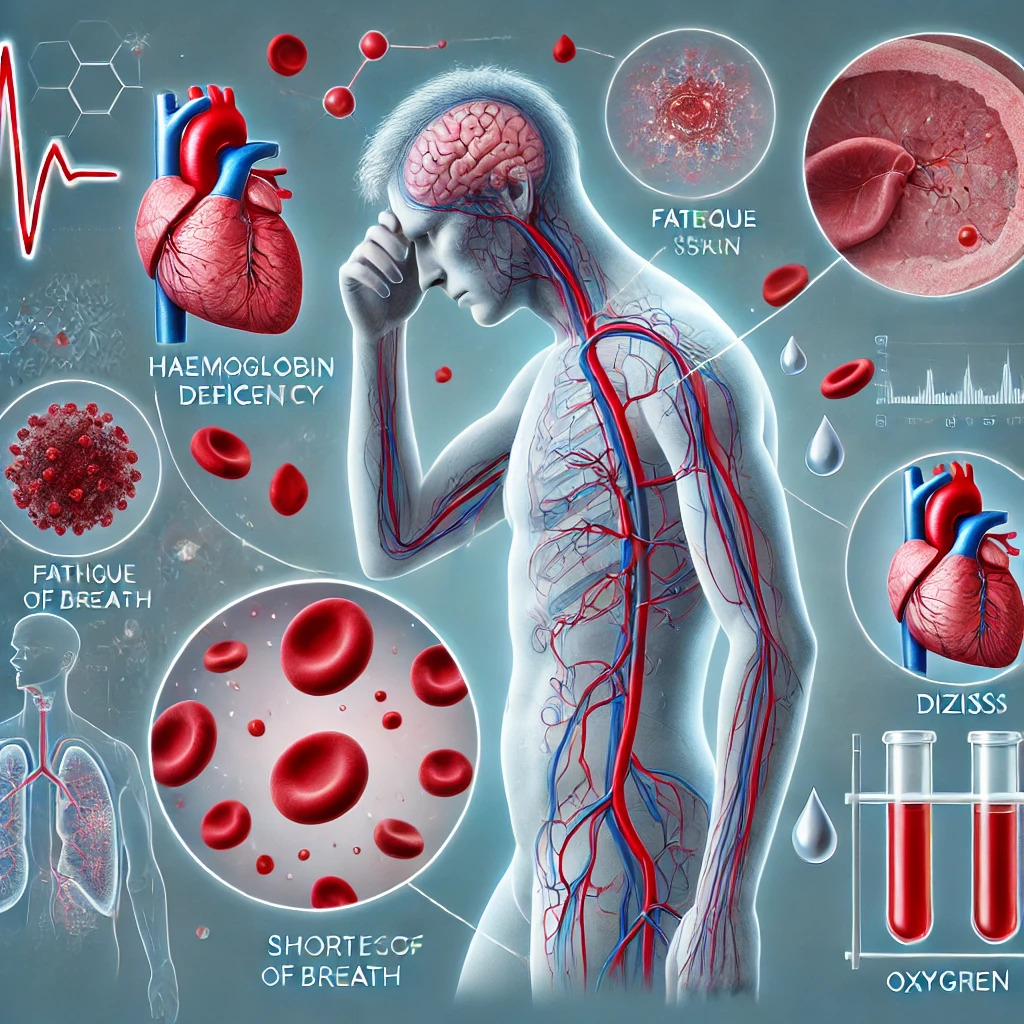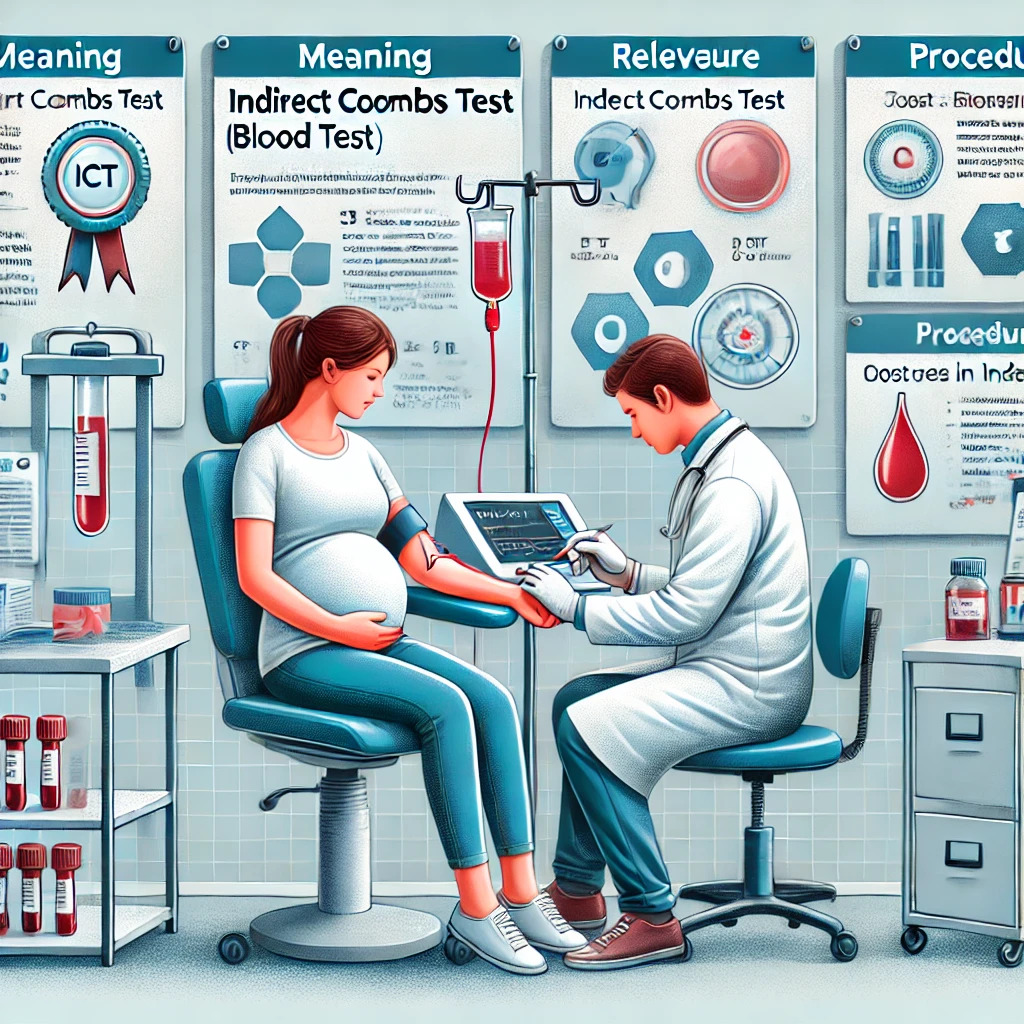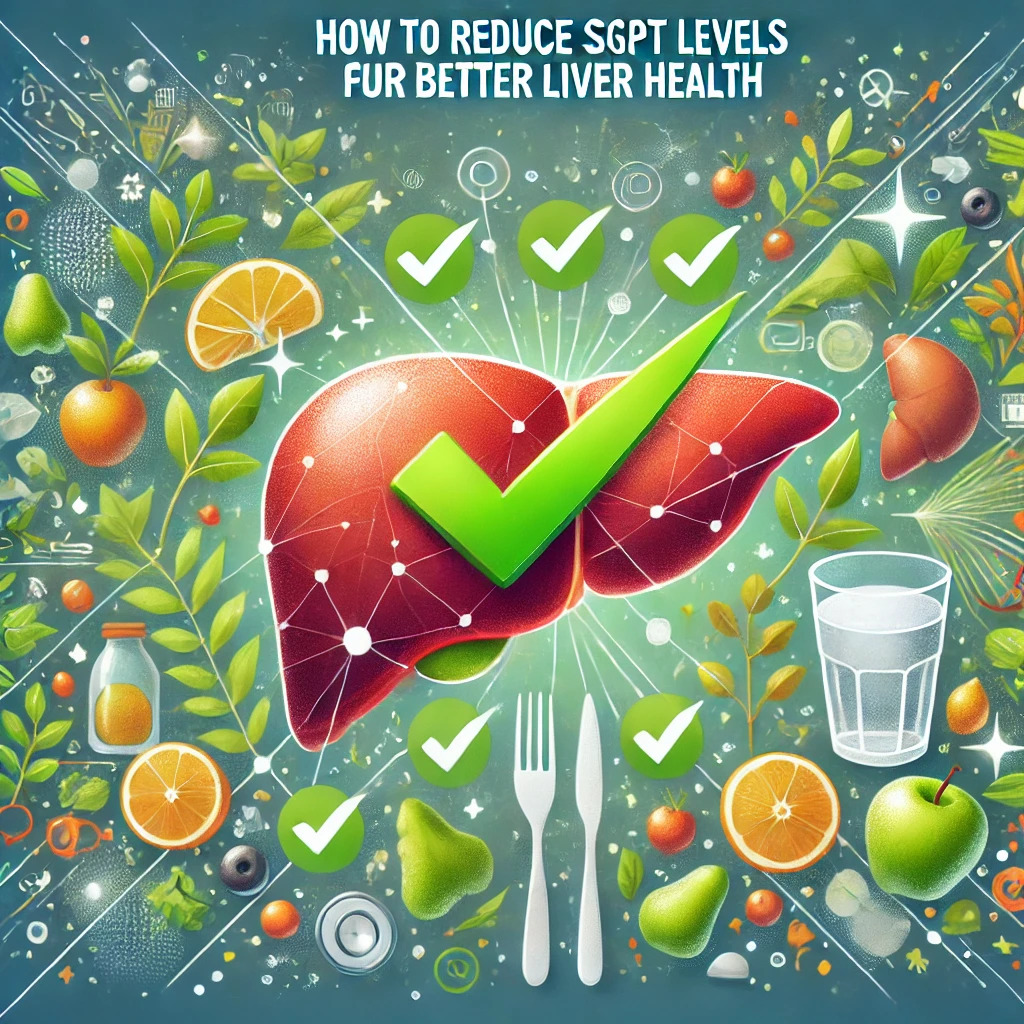How Much CRP Level Is Dangerous: Causes, Risks & Management
.png)
CRP, short for C-reactive protein, is an acute-phase protein. The liver makes this protein, which can be detected in the blood. Increased CRP levels can be dangerous in children also because the levels rise when there is an injury to the tissues, an inflammation, or an infection. It is important to monitor the levels of this acute-phase protein produced by the liver and to treat the underlying cause.
In this blog, we simplify the meaning of CRP, different tests, how much CRP level is dangerous, the causes of high CRP, potential and probable treatments, and how to reduce CRP levels in children.
Introduction - What is CRP?
CRP levels can be monitored using a standard test or a high-sensitivity test. If a doctor suspects an ongoing or chronic issue, then a high-sensitivity test is better because it can even detect small increases in C-reactive protein levels. This high-sensitivity test is also used to assess risk for coronary artery disease.
It is important to note that high levels of CRP do not tell the cause of the inflammation. It is an indicator of something abnormal going on in the body. Dangerous levels of CRP, including children, have been linked to heart attacks, amongst other problems. If hs-CRP (high sensitivity CRP test) levels are high after a heart attack, there is a risk of another heart attack. As the levels decrease, so does the danger.
The hs-CRP test is not important for heart disease but for many other acute conditions. High levels of CRP are not always associated with heart disease but many other states. The test was used extensively in COVID-19 patients to monitor their status.
What Are The Factors That Influence CRP Levels
Some factors can cause minor elevations in CRP tests
- Excess weight
- Sedentary lifestyle
- Vigorous exercise before the test
- Smoking
- Diabetes
- Depression
- Chronic stress
- Insomnia
- Gum and dental issues
- Pregnancy
- Females generally have higher levels than men
- Older adults may have slightly raised CRP levels
- Recent injuries can also raise levels
Certain medications like aspirin, steroids, and NSAIDs may lower the CRP levels and mask the problems.
What Are The Normal CRP levels?
CRP test is used to see if there is inflammation in the body. Inflammation is a response to infections, injuries, stress, etc. CRP levels may increase during a disease, even before you develop any symptoms.
The liver produces this protein and sends it to the bloodstream, so we test for CRP levels by taking a blood sample. CRP is a part of the immune system because it rises in response to inflammation, infection, or injury. Still, it cannot tell us about the disease, injury, or inflammation site.
CRP levels rise within a few hours of infection and go higher in bacterial infections than in viral infections.
Values below 0.9 mg/dL are considered normal CRP levels. For values above this, more tests are done to find the cause if symptoms are not specific.
How Much CRP Level is Dangerous?
- 0.3 mg/dL - 1.0 mg/dL is considered a minor elevation in CRP levels. It can be seen due to minor infections like the common cold or a chronic condition like diabetes. Older adults, pregnant people, especially those in the second trimester, people living a sedentary lifestyle, or those who are obese may also have minor elevations.
- 1.0 mg/dL - 10 mg/dL is considered moderate elevation. This needs to be investigated because it signals a significant problem. It may be due to an acute infection, a chronic inflammatory issue, due to heart disease, etc.
- Levels above 10 mg/dL are considered to be marked elevation. Other factors and symptoms should be considered, and an investigation should be done in this case because it suggests an inflammatory issue.
- Above 50 mg/dL is considered a severe elevation or dangerous level of CRP, as seen in acute bacterial infection. It requires immediate treatment.
Different labs follow different guidelines for CRP levels, so slight elevations may not mean much at times.
We have also seen multiple factors, like age, gender, pregnancy, level of physical activity, etc., that can also impact CRP levels. Minor elevations may not mean anything in some cases, while these elevations may signal a low level of inflammation in other cases.
Some medications may lower the levels and mask the signs of an infection or inflammation.
It is important that only a healthcare provider interprets your results and provides a diagnosis when someone has abnormal CRP test results.
Also Read: - Danger Level Of SGPT And SGOT
Why Do You Need A CRP Test, Including Children?
Your doctor will decide if you need a standard test or a high-sensitivity test to check your blood CRP levels, especially if there's concern about dangerous levels of CRP.
You may be asked to get this test:
- If you have or are suspected to have an infection.
- If you have an autoimmune disease.
- If you have an inflammatory condition like pelvic or inflammatory bowel disease, etc.
- If you had a heart attack.
- To assess your risk for heart attack.
- To monitor flare-ups in conditions like Rheumatoid arthritis or other autoimmune diseases.
- To monitor the efficacy of treatment if you're being treated for a long-term inflammatory condition.
- If you have a serious bacterial infection.
How Is The Test For CRP Levels Done?
It is a simple procedure where the blood is drawn from a vein in your arm or hand. It may be done in the lab or the hospital, or a sample may be collected from home.
Generally, you don't need to prepare for the test. Your doctor should know about your medicines and supplements, as certain medications can affect the CRP numbers. Avoid strenuous activity before the test, as that too can impact the results.
As results can vary based on lab, age, gender, health status, and other things, your doctor should interpret the results for you. Sometimes, healthy people can also have slightly raised levels, so you should always consult a doctor to diagnose.
You may be given additional tests to find out the cause of elevated CRP levels like-
- ESR is generally prescribed along with CRP, CBC, and other tests. It is a less sensitive marker of inflammation compared to CRP.
- Blood or urine culture may be done to diagnose bacterial infection.
- ANA (antinuclear antibody) test measures antibodies that attack the body's cells. This happens in certain autoimmune diseases such as Lupus.
- Rheumatoid factor or RF can be quantitative or qualitative and can diagnose Rheumatoid arthritis.
- Anti-CCP antibodies test may also be used for rheumatoid arthritis.
- Advanced tests may be used to detect heart disease if hs-CRP test levels are high and heart disease is suspected. Higher levels alone don't always indicate heart disease.
- Imaging tests like X-rays, Ultrasound, and CT scans may be used to look for infection or abnormalities in different organs.
What Are The Cause Of Elevated CRP Levels?
Dangerous levels of CRP, including children or COVID-19 patients, are seen in numerous acute and chronic conditions. These issues may be non-concerning, mild, or severe.
Some acute causes of high CRP levels are-
- Infections that may be bacterial, fungal, viral, or parasitic in origin.
- Trauma due to burns, major injuries, or surgery can also raise the levels.
- Inflammatory bowel disease, rheumatoid arthritis, and other autoimmune diseases.
- Gum infections can also lead to elevated levels.
Chronic causes that lead to dangerous levels of CRP due to inflammation are-
- Cardiovascular diseases include coronary heart disease, stroke, and peripheral arterial disease. A very high CRP test result after a heart attack is often considered a risk factor for a second attack.
- Cancers, which are associated with chronic inflammation, and cancers of the digestive tract often show high CRP levels.
- Many chronic conditions, like lung diseases, diseases of the kidneys, etc, can raise levels.
- Chronic stress, also linked to many diseases, can also raise CRP levels due to various mechanisms.
- Metabolic syndrome, which is a group of multiple conditions, can lead to dangerous levels of CRP. It includes obesity, hypertension, sedentary lifestyle, insulin resistance, etc.
What Are The Health risks of High CRP levels?
Health risks and symptoms of dangerous levels of CRP, including children and COVID-19 patients, depend upon the underlying cause of raised levels.
When the raised levels are due to chronic inflammation due to an infection, autoimmune disease, metabolic syndrome, or other reasons, one may experience
- Fatigue without apparent cause
- Aches and pains
- Weakness
- Sore or stiff muscles
- Low-grade fever
- Digestive issues like loss of appetite, nausea, indigestion, etc
- Insomnia or poor-quality sleep
- Headaches
- Unexplained weight loss or gain
Dangerous levels of CRP are seen with an acute infection. The associated signs and symptoms may be:
- High fever
- High heart rate
- High or low breathing rate
- Respiratory distress
- Excessive sweating, chills, shaking
- Dehydration
- Severe nausea and vomiting
- Diarrhea
- Dizziness, lack of orientation, lightheadedness
- Severe headache
- Severe body aches
- Loss of consciousness
The symptoms will depend upon the type and site of infection.
The health risks depend on the cause of inflammation, duration of the reason, high CRP levels, presence of other risk factors, and general condition of the person.
Dangerous levels of CRP can be a risk for cardiovascular disease if other risk factors are also present.
How To Reduce Dangerous Levels of CRP At Home With Home Remedies
CRP levels may be higher in various conditions and due to many factors. It is important to consult a medical professional for higher CRP levels before making any changes to your lifestyle and before you try home remedies. Some causes of higher levels can be serious.
You can try the following remedies and lifestyle modifications with medical guidance and treatment to achieve normal CRP levels. These recommendations apply to everyone, including children and COVID-19 patients.
- Quit smoking as it is a known inflammatory factor.
- Try to lose weight because obesity triggers inflammation.
- Get good quality sleep, aiming for 7-8 hours daily.
- Reduce stress and learn ways to manage stress. Yoga, meditation, community building, and therapy can be helpful.
- Include anti-inflammatory foods, like berries and other fresh fruits, turmeric, ginger, vegetables, whole grains, and foods rich in omega-3 fatty acids.
- Limit or avoid processed foods, red meats, and sugary drinks.
- Exercise regularly and aim for at least 30 minutes of exercise five days a week. Training should be planned according to age and health status to be safe.
- Certain supplements can be helpful, too. You can consult a nutritionist to learn which supplements can benefit you.
These are general guidelines. These guidelines and tips for managing CRP levels may or may not be suitable for everyone. Seek medical advice.
Need For Medical Attention When Dangerous Levels of CRP Are Present
- Irrespective of the cause or symptoms of high CRP, one must always seek medical consultation.
- Your doctor will assess your condition based on CRP test results, symptoms, and medical history.
- Only your doctor can know which additional tests are required to find the cause and make a diagnosis.
- A medical professional can tailor treatment based on your diagnosis, medical history, and health status. This can include medicines, supplements, and lifestyle changes.
- Your doctor can monitor progress, look for signs of flare-ups, modify treatment, etc.
- A medical health professional is also the best person to help prevent inflammation and complications.
- This is why you need to consult a doctor. A dietician and a physical therapist can help you based on your diagnosis.
Conclusion
Doctors use CRP and hs-CRP tests to measure the levels of CRP in your body. Temporary and mild elevations due to an injury, exercise, pregnancy, menstruation, or in the absence of any symptoms will not require any treatment for high CRP levels. If there are symptoms, an already present chronic condition, an infection, and Dangerous Levels of CRP, then treatment will be needed for the underlying cause. If you have high hs-CRP levels and risk factors for heart disease, it needs a proper evaluation.
Whether you need treatment or you don't can be decided by a doctor.
Getting the test done from a reliable laboratory is important to get accurate results. O-Lab in Jammu is the best place to get yourself tested for CRP levels in your blood. Other tests are also offered. With a quick turnaround time, accurate reporting, state-of-the-art facility, and facility for home sample collection, we help you take control of your health.





